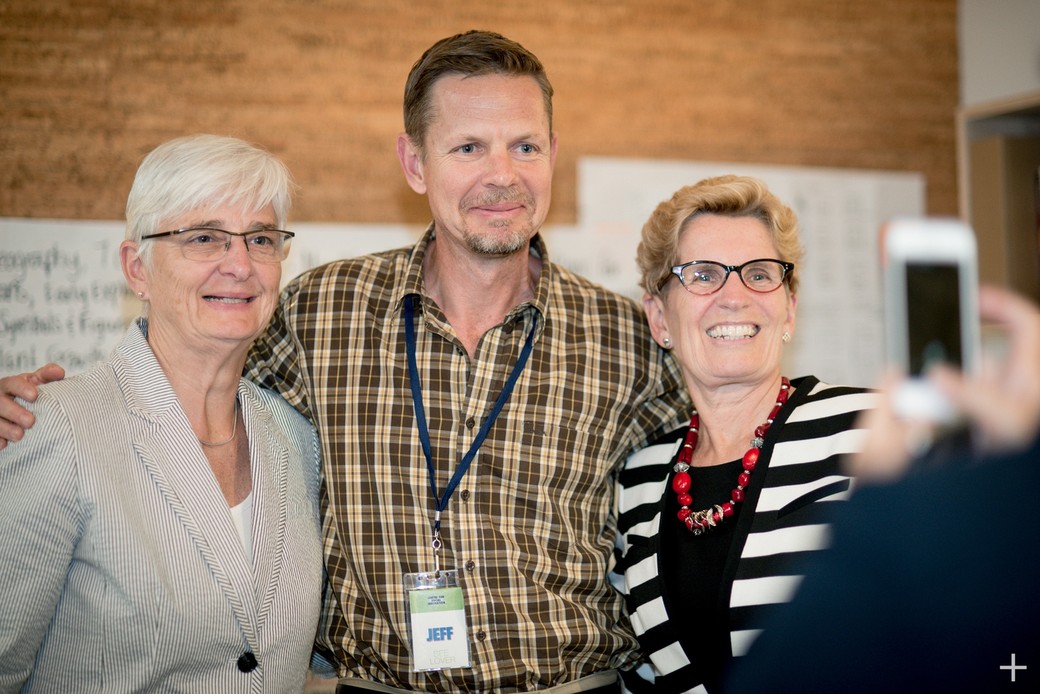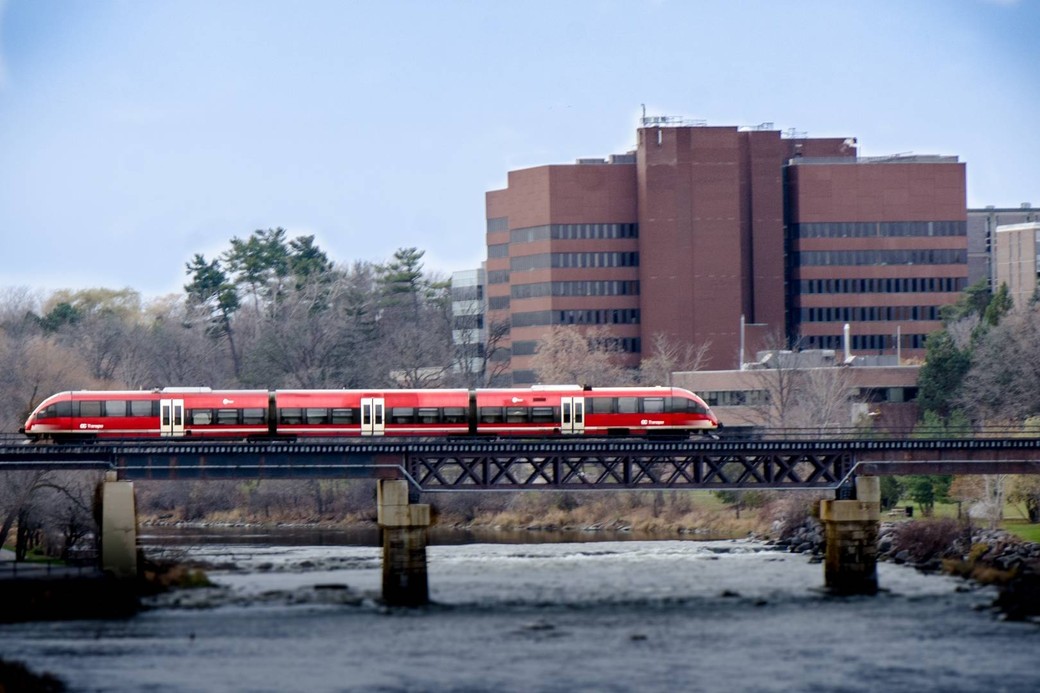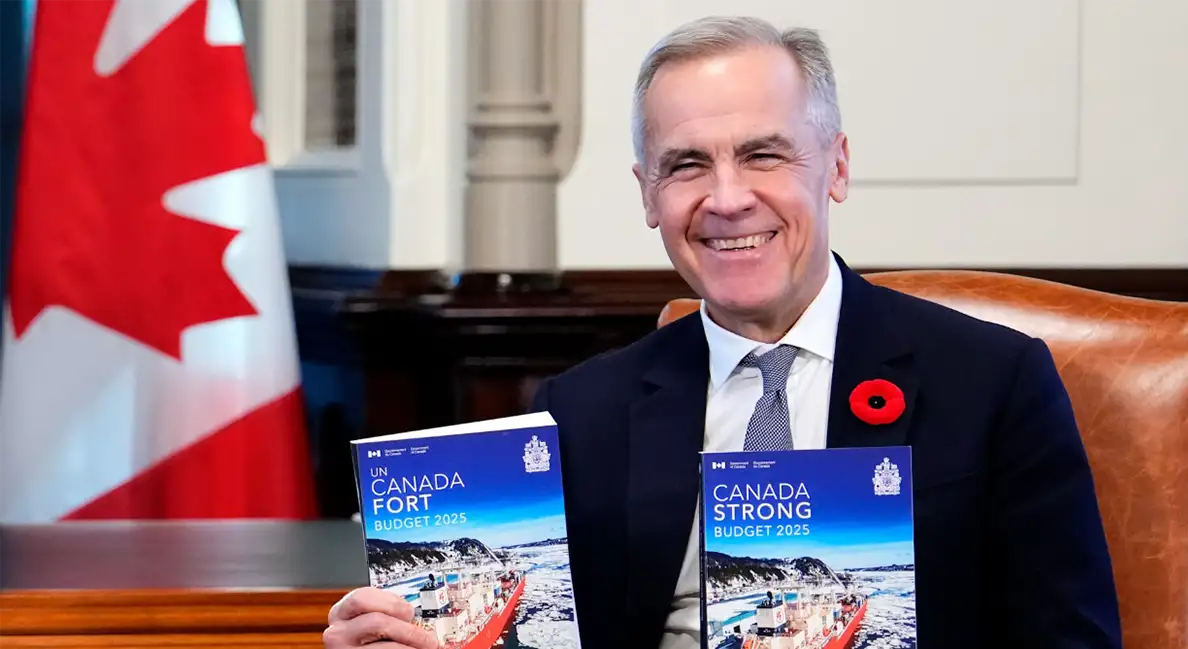
K&A: Our Perspective on Budget 2016
Kathleen Wynne (right) announced the new Ontario budget late February. Photo by Jason Hargrove under Creative Commons license.
As our client base continues to grow so too does their demand for objective insight into events like Budgets. This analysis of Ontario’s Budget 2016 and post discussion strives to provide an objective perspective on Budget 2016 complete with post Budget impact and chatter — with no partisan spin!
“We cannot simply trust that those fair economic winds will stay with us” (Hon. Charles Sousa, Budget Address 2016, Queen’s Park)
Playing the Long Game
There was a time when government Budgets were big events. Lots of people in the gallery at the Legislature, lots of media attention before and after, the cool factor of being in a Budget lock-up to get “first-hand” analysis from government types who were “au fait” on the Budget and its process and, days and days of analysis and other contrived events to sell the document was usually the order of the day.
In the years since Kathleen Wynne was appointed Premier and subsequently elected as government, she and her solid majority government have, for all intents and purposes, subscribed to a low key Budget management program. That means, sticking to their mantra that they “have a mandate to spend and manage the public’s money” – the best they know how. It’s their modus operandi, in effect, to make events like their annual Budget Bills appear like low-key affairs. In fact, Budget non-events appear en vogue for all governments across Canada.
Budgets, too, are all about winners and losers.
Budget 2016 is no exception. Here’s a snapshot:
- Post Secondary students are big winners – viewers in the gallery could actually see the blood rush from Opposition Leader Patrick Brown’s face when the Minister of Finance announced that tuition would be free for low income families
- Ontario citizens looking to save more for retirement – the government announced ORPP offering Ontarians an opportunity to save for their retirements with added kicker coming from the Ontario government,
- Women and minority groups- with a pledge for monies to flow for aboriginal women’s issues and to create anti-racism strategies
- Drivers – the government announced that it would axe the $30 Drive Clean tariff
- Gamers and those who are looking to see OLG modernization and horse racing stabilize
- Energy, environment and transit activists who have pushed and prodded for programs and plans to manage green house gas emissions (GHGs) and climate change
- Hospitals – who get a boost in capital spending after getting nothing for years
From our vantage point some of the losers include:
- Seniors with relatively good retirement nest eggs will pay more for their prescription medications
- Commuters – about to get the proverbial “crap” beaten out of them on an increase in gasoline tax to almost 5 cents and the establishment of toll lanes on some of the 400 series highways
- Home owners – will pay more – all in an effort to reduce GHGs and perhaps change behaviours toward less use of natural gas to heat their homes
The Budget Aftermath
We fully expected that the non-event would play out in the days after the Budget speech, but little did the Premier expect that her free tuition announcement and the subsequent accolades in public would get overshadowed by the fact that media seemed to demand more explanation as to Ontario’s massive debt. Ontario’s debt is larger than California’s, a state that has twice Ontario’s population. This fact seemingly turned a non-event Budget into a narrative that translates into a majority of Ontarians being unsupportive of it and by extension Ontario’s Liberal Government.
In fact, in the short week after the Budget and apparently as a result of further analysis by media and the public, polling suggests that almost two thirds of Ontarians do not support the Budget and, as a government, Premier Wynne’s Liberal Government are 17 points behind the almost invisible Conservative Patrick Brown, Leader of Her Majesty’s Loyal Opposition.
Budget Highlights
- A plan for reducing Green House Gas emissions and climate control. The plan, governed by the Climate Change Mitigation and Low Carbon Economy Act, will be linked to the existing cap-and-trade systems in place in the province of Quebec and State of California under their recently ratified Western Climate Initiative. The Wynne government anticipates that its cap-and-trade scheme will cover a broad range of industries, which account for nearly 82 per cent of the province’s total GHG emissions. The scheme is expected to generate proceeds in excess of $1.8 billion through the sale of carbon allowances and is intended to do most of the heavy lifting necessary to enable the Ontario government to meet its greenhouse gas reduction obligations of 37% below 1990 levels by 2030.
- Other infrastructure spending including transit funding and improvements for communities outside the GTA and an increase to other key infrastructure for the province will continue as a priority.
- The Ontario Retirement Pension Plan – Ontarians will begin to participate in the scheme starting in 2017.
- Another populist move – how about wine in grocery stores! Big win! Soured a bit by an announced increase in tax per bottle of beer and wine.
- A $3.00 increase in tax on a carton of cigarettes.
- A 4.2-cent increase in the price of gasoline.
- Aboriginals, minorities, students wishing to attend university and hospitals were all mentioned in the context of spending promises in the Budget. To wit, $100 million would go to programs for indigenous women and to combat racism; post secondary education will be FREE for student from families whose average annual income is under $50,000 –grants will be available; hospitals will get a boost in capital spending to the tune of about $350 million in this fiscal year.
- The province’s lottery and gaming corporation will continue to drive policy in the area of charity bingo adding more games and products – which is a boost to the industry. In turn, OLG will shore up its offering in Internet based gaming –boosting its presence to stave off grey market competition. At the same time, the OLG will integrate horse racing into its modernization strategy and funding will continue under the Premier’s promised transfer payment program, which will be extended for two more years. Beyond this land-based gaming contracts with private sector companies will continue.
What’s missing?
In our view, the government may come up short on its legacy. Let’s face it, the Budget is a non-event and the Opposition knows it – fighting it would only end in a tie. And in politics, like baseball a tie always goes to the runner! But the Premier and her Government appear so eager to establish a legacy for themselves through announcements in this Budget and it just appears elusive.
Case in point – the big announcement of Ontario’s Cap and Trade scheme is not something she can look to as a legacy for herself and her government. In fact, the Premier’s pronouncements about the province’s climate change solution are someone else’s legacy – namely California’s and Quebec’s – Ontario has merely signed on to it. Moreover, on this particular issue, what really appears to miss the mark is specifics about its Cap and Trade plan altogether. Some observers are tacit and muted in their concerns about the plan, quietly hoping they will get clarification as to where revenues from the “plan” would flow. Other observers cite mistrust of the program’s (moreover the Government’s) intent suggesting that the government may merely pass on the costs to the Ontario economy outright – meaning we all pay! If that’s the case, then, as some have questioned, why sign on to a Cap and Trade scheme? Or why support it at all? In fact, some have mused, the government would do better to engage all Ontarians in a climate change culture through the implementation of a carbon tax similar to British Columbia BC. The point is, that Ontarians themselves appear not to have a clear understanding of the Cap and Trade scheme and that knowledge delta might be a major contributor to the poor level of support enjoyed by the government for its Budget and ultimately the Government itself. But let’s save that discussion for the pundits and pollsters.

In the context of legacies, the Premier appears to be on a razor’s edge. She belongs to a Party that has held power in the province uninterrupted since 2003. She’s played a role in the legacy of the McGuinty Government from 2011 to 2013 – and it’s a good legacy too. One that has been earned by the closing of coal fired plants throughout the province; expansive investments in education; integration in healthcare leading to better outcomes for patients about which the province can rightfully brag and; sustained spending in roads and other infrastructure. But let’s face it too, this legacy may not be all good – there are many Ontarians who believe the gas plant, e-health, Ornge and other energy and gaming scandals still follow this current lot at Queen’s Park. While perhaps trying to distance herself from the McGuinty record by making the case that hers is a new government from 2012 onward, the distinction appears to be lost on Ontarians and that’s where support for the Wynne Liberal government appears to be on the wane.
Look, who’s kidding who? Astute political observers suggest that every government faces a mid-term drop in popular support. This time, though, we believe with the government now thirteen-years-old institutionalization may be taking hold and that’s a challenge. Couple this with the fact that Premier Wynne seems to be without the benefit of a tangible and appealing legacy, the government may be on a short leash going forward.
Couple this with the fact that the Opposition appears to be playing the long game – not blowing their gunpowder on the Budget when the public appears to be activist on it more. The best example we can highlight is the recent about face the Premier did on her Government’s Budget announcement that some seniors would pay more for prescriptions. Perhaps she listened to the public on the matter or perhaps was shown a media clip of a senior citizen in 1985 attacking then Prime Minister Brian Mulroney about his Budget item of de-indexing pensions. It turned quickly for him and so it appears the same for Premier Wynne in 2016.
The government’s energy strategy, too, seems to be its Achilles heel and we’ve commented on this time and again. It’s their toughest challenge and one that the public will not forgive them as electricity prices continue to rise.
Moreover, we believe the government just can’t mute the issue of the debt. The public has been condition for too long to think that deficits are bad – and this Government has done a great job reducing its deficit targets, in contrast though, it can’t seem to hide from the massive debt the province faces and that’s where the Opposition appear waiting to pounce – in the long term and well in advance of the 2018 election.
In the meantime, we continue to monitor the aftermath and the ensuing debate at Queen’s Park on the Budget and other issues in the days and weeks ahead and, as always, we’ll keep you apprised.
For more information on the Budget, please refer here.
For more information on K&A and how we can help you, please refer to our website. You can also find us on LinkedIn under Kealey & Associates and on Twitter using our tag @dmfk51.









